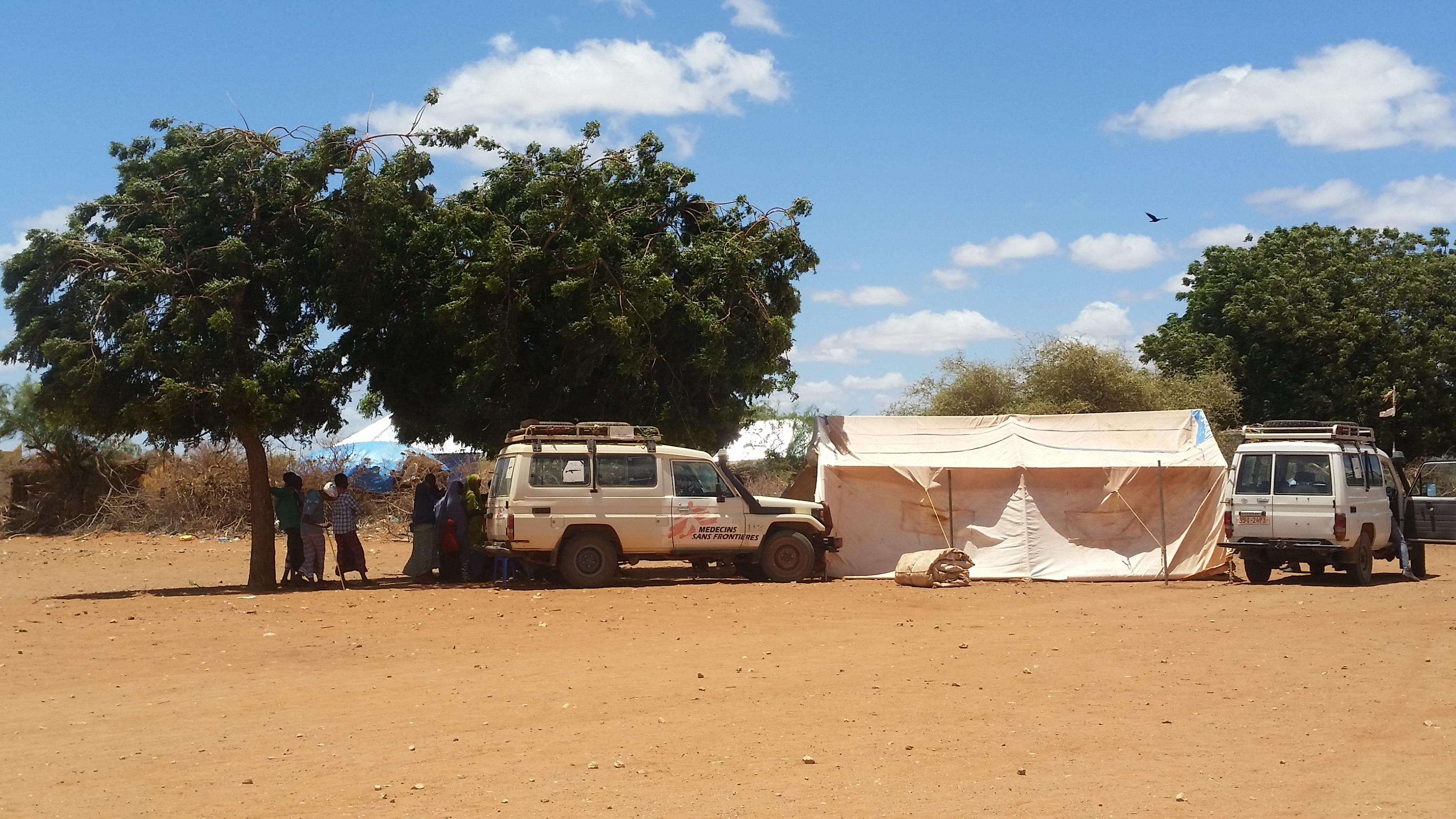In recent years, severe drought and the resulting die-off of livestock have forced thousands of formerly nomadic people to settle near Galorgube, a small town in the Doolo Zone of Ethiopia’s Somali region. The situation has led to a humanitarian emergency in the area, with an acute malnutrition crisis and outbreaks of disease taking a heavy toll on the displaced population. The number of young children with severe acute malnutrition in Doolo Zone is now at the highest point in the ten years Doctors Without Border/Médecins Sans Frontières (MSF) has worked in the area.
MSF provides both in- and outpatient therapeutic nutritional treatment and assists in the fight against acute watery diarrhea. Before they can treat patients, MSF’s health workers must first connect with local communities to understand the intricacies of their habits, customs, and beliefs. That’s where anthropologists like Roberto Wright come in.
Listening and Understanding
A member of the MSF emergency team, Wright has been working in the Somali region since the end of June 2017. He helps mediate between MSF and the community, explaining the organization’s work and the health services it offers. "Part of my work is to understand their approach regarding traditional medicine and to explain MSF care to them so that they can combine both," he says. "If they don’t understand what MSF does, they will never seek our services or come to our health centers."
For example, the elders of a local community initially refused to transfer a severely malnourished child to MSF’s inpatient therapeutic feeding center in Yukub, near Galorgube. Like their ancestors, they only trusted traditional healers. However, after an hour-long meeting, Wright was able to explain how MSF’s services could help the patient. "We found a compromise that respects their perspective, and, at the same time, upholds our medical objectives," he says. "They said yes, so it was worth it."
Reaching Those in Need
Wright trains and works with hundreds of health workers, most of them locals or displaced people. Each morning they divide into pairs and spend the day talking with displaced people in the area. These teams speak primarily with women, most of whom have between three and eight children. The health workers ask questions to determine if any children have severe acute malnutrition or other complications requiring immediate medical treatment. With an ongoing shortage of food in the area, the teams send an average of 10 children a week to MSF’s health facilities for treatment.
Wright’s goal is to help MSF reach local communities and increase their acceptance of the organization. "We need to adjust the way we work to their perspective in order to fit in with their community practices," he says.
Mutual understanding is the key. "For me, the challenge in the Somali region is to understand how these people are trying to adapt," says Wright. "They are used to crises, but in this one their livestock are dying so fast, which is something they’ve never seen before. They need a platform to exchange ideas to work out what to do next. We want to develop this at the community level, but also inside the heath facility in a health promotion tent."
Respecting Customs
Today Wright is transporting a one-year-old child from Yukub to MSF-supported Wardher Hospital. The baby’s mother and the community elders have agreed that MSF should treat him. After arriving at the hospital, the child and his mother are taken to the waiting area. In addition to two wards, the hospital recently increased the number of tents for malnourished children from two to six. As they cross the hospital yard, Wright recalls an episode in which a mother wanted to leave the hospital with an unconscious child and visit a traditional healer.
"That evening I went to the hospital to talk to the mother, to find out why she wanted to leave and try to find some common ground," he says. "When I asked why she wanted to leave the hospital, she said, 'I want to give my child traditional treatment. She must be exorcized. I want a sheikh to read the Quran to my child.' I replied, 'That is something we can help with.'"
As part of his community engagement strategy, Wright has reached out to key religious leaders. So he called a sheikh to come and perform an exorcism. The situation was resolved, and the child remained in the care of the hospital. Wright’s job is an important link in the MSF chain, emphasizing listening to local people and understanding their practices. This approach has proven essential to MSF’s ability to provide medical care in the Somali region.
To date, in 2017 MSF has treated over 12,200 children under five years old suffering from severe malnutrition and nearly 15,900 cases of acute watery diarrhea in emergency projects in Ethiopia’s Somali region. MSF also manages cases of measles and acute jaundice. With rains expected to start in three weeks, new outbreaks are imminent in the region. All actors on the ground will need to ramp up their emergency preparedness to avoid a wider humanitarian crisis.
"We need to adjust the way we work to [the local] perspective in order to fit in with their community practices."
Roberto Wright




